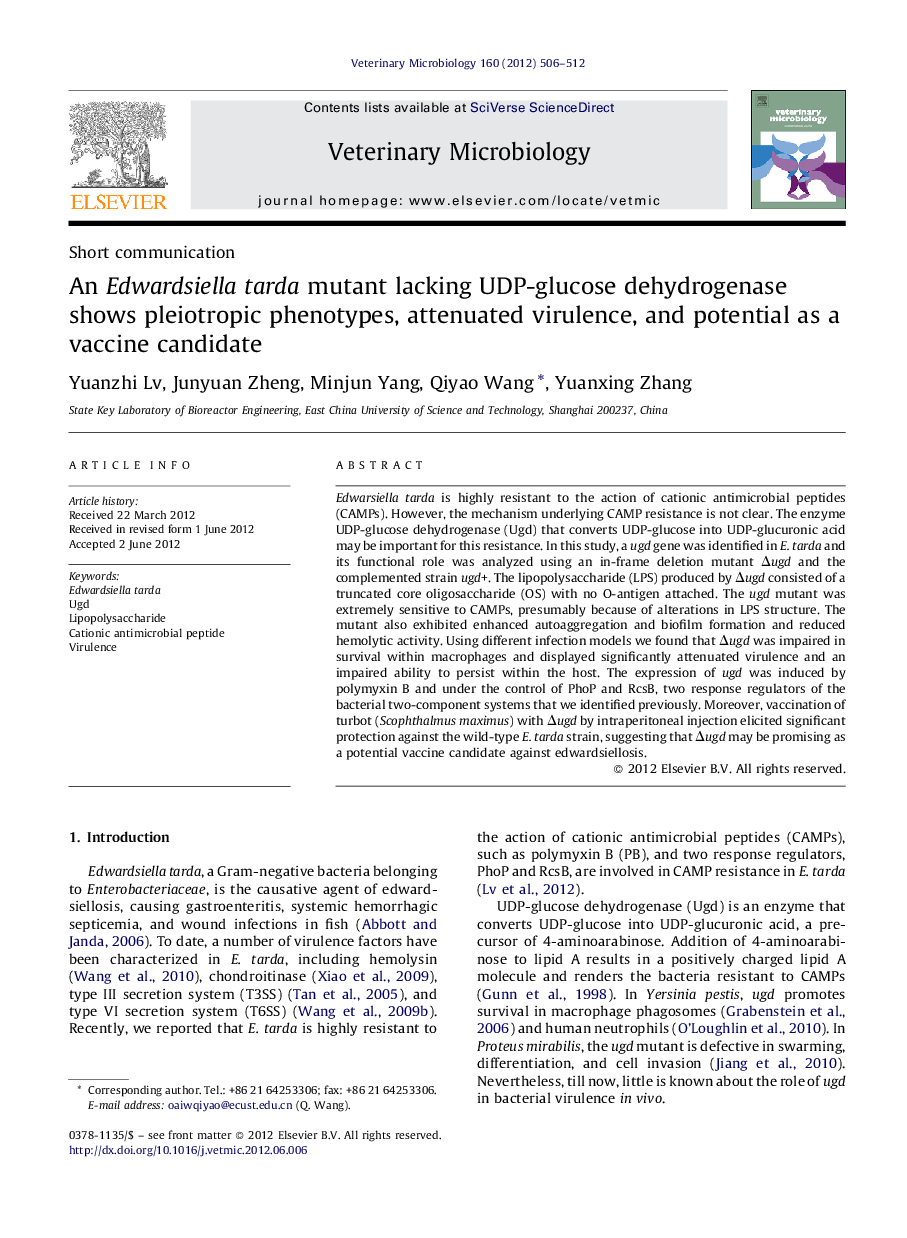| Article ID | Journal | Published Year | Pages | File Type |
|---|---|---|---|---|
| 5801340 | Veterinary Microbiology | 2012 | 7 Pages |
Edwarsiella tarda is highly resistant to the action of cationic antimicrobial peptides (CAMPs). However, the mechanism underlying CAMP resistance is not clear. The enzyme UDP-glucose dehydrogenase (Ugd) that converts UDP-glucose into UDP-glucuronic acid may be important for this resistance. In this study, a ugd gene was identified in E. tarda and its functional role was analyzed using an in-frame deletion mutant Îugd and the complemented strain ugd+. The lipopolysaccharide (LPS) produced by Îugd consisted of a truncated core oligosaccharide (OS) with no O-antigen attached. The ugd mutant was extremely sensitive to CAMPs, presumably because of alterations in LPS structure. The mutant also exhibited enhanced autoaggregation and biofilm formation and reduced hemolytic activity. Using different infection models we found that Îugd was impaired in survival within macrophages and displayed significantly attenuated virulence and an impaired ability to persist within the host. The expression of ugd was induced by polymyxin B and under the control of PhoP and RcsB, two response regulators of the bacterial two-component systems that we identified previously. Moreover, vaccination of turbot (Scophthalmus maximus) with Îugd by intraperitoneal injection elicited significant protection against the wild-type E. tarda strain, suggesting that Îugd may be promising as a potential vaccine candidate against edwardsiellosis.
